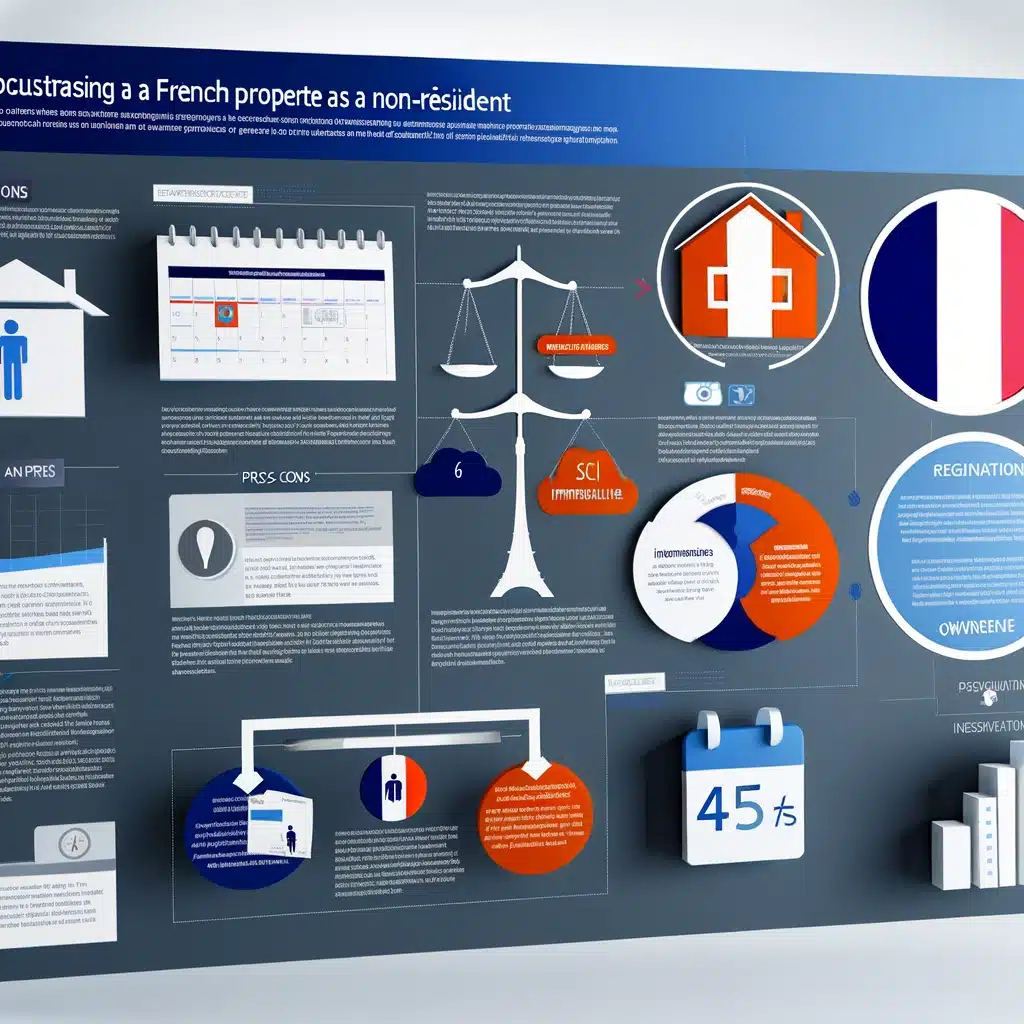Author: Blue Sky
Securing Your French Dream Home: Understanding Loan Guarantees and Their Fees

When embarking on the exciting journey of purchasing a property in France, understanding the landscape of home loans is crucial. An often under-discussed yet essential component of this process is choosing the right type of loan guarantee. This guarantee is a lender’s assurance that the loan will be repaid, a critical aspect especially for foreign buyers. In France, borrowers have options, including Crédit Logement and SACCEF guarantees, as well as mortgage security. Each of these options comes with its set of advantages and associated costs, which are pivotal to consider for anyone looking to secure a French home loan efficiently and cost-effectively.
Crédit Logement Guarantee: The Popular Choice
The Crédit Logement guarantee is widely favored for its flexibility and cost-effectiveness. Rather than requiring borrowers to block a significant amount of money in a bank as security, Crédit Logement offers a guarantee to the lender against loan defaults. This is particularly beneficial for borrowers who prefer to keep their liquidity for other investments or property related expenses.
The fees for a Crédit Logement guarantee include a commission fee, which is a percentage of the loan amount that is partially refunded at the end of the loan term. The exact percentages and amounts vary, highlighting the importance of consulting with your lender or a mortgage expert to get precise figures.
SACCEF Guarantee: Securing Your Investment
Another popular guarantee option is offered by SACCEF (Société d’Assurance Crédit des Caisses d’Epargne de France). Like Crédit Logement, SACCEF guarantees your loan against default, but it’s often associated with loans from specific banks or financial institutions. The SACCEF guarantee is typically more suited for borrowers who are obtaining their mortgage from a participating bank and can offer a slightly more competitive rate in some cases.
The fees for a SACCEF guarantee usually include a one-time payment that varies based on the loan amount and other risk factors. Again, individual consultations with your lender will provide the most accurate cost assessment.
Mortgage Security: The Traditional Route
Opting for a traditional mortgage security means that the loan is secured against the property itself. The technical name is “Hypothèque Légale Spéciale”. If the borrower fails to make the required payments, the lender has the right to take possession of the property. This option might be preferable for lenders due to the direct link to the property as collateral. A notary must be involded to register the mortgage security.
Comparing Fees and Making Your Choice
When deciding between these guarantees, one must consider both the initial costs and the long-term implications. While Crédit Logement and SACCEF offer potentially lower upfront expenses and flexibility, a mortgage security might provide certain tax benefits or be more favorable in the lender’s eyes.
Before making a decision, it’s advisable to conduct a detailed comparison of the fees associated with each guarantee type, factoring in your financial situation, loan amount, and long-term property plans. Consulting with a mortgage advisor who has extensive experience in the French property market can also offer invaluable insights, ensuring you make the best choice for your unique circumstances.
Choosing the right type of loan guarantee is a crucial step in securing your French property. By understanding the nuances of Crédit Logement and SACCEF guarantees versus traditional mortgage security, including the fees involved, borrowers can make informed decisions that align with their financial goals. With careful planning and expert advice, securing your dream home in France can be a smooth and rewarding process, marking the beginning of an exciting new chapter.
The Ins and Outs of Early Repayment on French Mortgages: What You Need to Know

Navigating the often complex world of mortgages can be daunting, especially in an international setting like France. Many borrowers, at some point, consider the possibility of repaying their mortgage early. Whether motivated by a sudden financial windfall or the desire to reduce interest expenses, understanding the mechanics and implications of early repayment is crucial. This article delves into the specifics of early mortgage repayment in France, including the associated fees and French regulations governing this financial move.
Can a Loan be Settled Early?
Yes, in France, borrowers have the right to repay their mortgage early, either partially or in full. This flexibility allows homeowners to adjust their financial commitments as their circumstances change. However, exercising this option isn’t always straightforward and can come with financial penalties.
Partial Early Repayment
Many borrowers opt for a partial early repayment to reduce their outstanding loan balance, thereby decreasing either their monthly payments or the term of the mortgage. Most French mortgage contracts accommodate this choice, but terms can vary significantly from one lender to another. Typically lenders require that the minimum amount that can be repaid amounts to at least 10% of the initial loan amount.
Fees Associated with Early Repayment
When considering early repayment, one of the key factors to assess are the prepayment fees (“indemnités de remboursement par anticipation” or IRAs) that might apply. These fees compensate the lender for the interest they will lose because of the early repayment. Generally, the fee is capped by French law at either six months’ worth of interest on the repaid amount or a maximum of 3% of the outstanding loan balance prior to the repayment, whichever is lower. However, it’s important to review the specific terms outlined in your mortgage agreement as some contracts might offer more favorable conditions.
French Regulation Governing Early Repayment Fees
French mortgage regulations are designed to protect the borrower. The capped fee structure for early repayments is part of this protective framework. Additionally, some borrowers might find that their mortgage contract exempts them from early repayment fees. Newer contracts, influenced by competitive mortgage markets, might also offer more lenient terms regarding early repayments.
In any case, with residential mortgage contracts regulated by Article R.313-25 of the French Consumer Code, early repayment fees shall not give rise to the payment of a fee equal to the value of a half-year of interest on the principal repaid at the average rate of the Loan, without exceeding 3% of the remaining principal balance before repayment. Besides, no exit fees are due by the Borrower in the event of early repayment due to: the sale of the property following a change in the workplace of the Borrower or their spouse, the death of the Borrower or their spouse, or the forced discontinuation of the professional activity of the Borrower or their spouse.
Taking the Next Steps
For homeowners considering this move, the first step should be to review their mortgage contract thoroughly or consult with their lender or a mortgage advisor to understand the specific terms related to early repayment. It’s also wise to calculate whether the potential savings in interest outweigh the costs associated with early repayment fees.
While the opportunity to repay a mortgage early can be appealing, it comes with its own set of considerations and costs. By understanding the specifics of your mortgage agreement and the French regulations regarding early repayment, you can make an informed decision that aligns with your financial goals. Whether your aim is to reduce your overall interest expenses or to free up financial resources for other investments, careful planning and consultation with financial and legal advisors can ensure that you navigate the process of early mortgage repayment in France effectively and with your best financial interests in mind.
Navigating the Waves: Adapting Your French Mortgage in a Changing Interest Rate Environment

Navigating the Waves: Adapting Your French Mortgage in a Changing Interest Rate Environment
In an ever-fluctuating financial world, interest rates are as variable as the tides. For homeowners with a fixed-rate French mortgage, a decreasing interest rate environment might seem like a missed opportunity to reduce monthly payments. However, several strategies can help you navigate these changing tides and potentially save money in the long run. Let’s dive into the strategies you can employ, including refinancing, renegotiating terms, repaying capital, and switching to a variable rate.
Refinancing Opportunities
Refinancing involves taking out a new mortgage with a lower interest rate to replace your existing mortgage. This move can potentially lower your monthly payments and overall interest paid over the life of the loan. However, it’s necessary to consider fees associated with refinancing, such as prepayment penalties, application fees, and any legal fees, to ensure that refinancing is cost-effective. In France, one-off fees associated with refinancing an existing mortgage loan typically amounts to 1.5% to 3% of the outstanding mortgage balance.
Renegotiating Current Mortgage Terms
If refinancing seems too cumbersome or costly, another option might be to renegotiate the terms of your existing mortgage directly with your current lender. French High Street banks are typically willing to adjust your interest rate to more competitive current rates to retain you as a customer. This route often has lower associated costs than refinancing and can be an effective way to reduce your interest rate without starting a new mortgage. Administrative fees associated with switching to a plan with a lower interest do not typically exceed €800.
Repaying Capital Early
With lower interest rates, you might find yourself in a position to make additional payments on your mortgage principal. Early repayment can significantly reduce the total interest paid over the term of your mortgage. French law allows for partial or full early repayment of loans, but it’s important to check if your mortgage contract includes any prepayment penalties.
Switching from Fixed to Variable Rate
If you anticipate that the interest rates will continue to decline, switching from a fixed-rate mortgage to a variable rate could result in lower payments in the short term. However, this option carries the risk of rates increasing in the future. It’s a strategy best suited for those comfortable with the potential fluctuation in monthly payments.
A decreasing interest rate environment presents several opportunities for homeowners to reduce their mortgage expenses. Whether you choose to refinance, renegotiate your mortgage terms, repay the capital early, or switch to a variable rate, each option requires careful consideration. Assessing the costs associated with each strategy and understanding the terms of your current mortgage agreement are paramount. Consulting with a mortgage advisor can also provide tailored advice based on your financial situation, helping you make the best decision in a changing interest rate landscape. Remember, the goal is not just to ride out the waves but to navigate them skillfully to your advantage.
Unlocking French Real Estate: The Non-Resident’s Guide to purchasing through an SCI

Investing in French real estate as a non-resident presents unique opportunities and challenges. One efficient method to navigate the complexities of property ownership in France is through the structure of a Société Civile Immobilière (SCI), a civil real estate company. This strategic approach offers numerous benefits, yet, like all investments, comes with certain considerations. Here’s what you need to know about purchasing a French property through an SCI, from its advantages and potential drawbacks to the procedural aspects involved.
Benefits of Using an SCI for Property Ownership
An SCI primarily allows investors to manage property collectively, offering a flexible management system and ease in transferring ownership shares, especially useful for inheritance purposes. This is particularly beneficial for non-residents, as it can significantly simplify French inheritance laws, which are notoriously rigid and can be circumvented through SCI ownership to an extent.
Moreover, an SCI facilitates tax management, allowing property owners to potentially benefit from tax optimizations, especially concerning rental income and wealth tax implications. It also provides a layer of anonymity for the owners, which is often sought after in high-value transactions.
Considerations and Potential Drawbacks
However, forming an SCI is not free of challenges. The establishment and annual running of an SCI necessitate dealing with additional administrative and accounting obligations. These requirements mean that the property owners must commit to maintaining accurate records and possibly hiring professionals to manage these tasks, incurring extra costs.
Furthermore, an SCI’s tax transparency means that owners are taxed personally on their share of the SCI’s profits, which could lead to double taxation if not managed correctly. Hence, it’s crucial for potential investors to consult with tax advisors to navigate these waters effectively.
The Formation Process and Restrictions
Setting up an SCI involves registering the company and drafting statutes, usually with the help of a notary or legal advisor, which can take anywhere from a few weeks to a few months, depending on the complexity of the arrangement and the efficiency of the parties involved. While there is no minimum capital requirement, the process does include registration fees and potentially notary fees.
As for restrictions, it’s vital to understand that an SCI can’t engage in commercial activities. Its sole purpose must be the management of property ownership. This restriction doesn’t preclude the rental of properties but does limit the company’s scope of operations, such as prohibiting the daily hotel-like rental of furnished apartments.
Investing in French property through an SCI offers a strategic solution for non-residents by simplifying ownership and potentially providing financial benefits. Nonetheless, the decision to form an SCI should not be taken lightly. Prospective investors should thoroughly assess both the advantages and the practical considerations, including the legal, tax, and administrative responsibilities that come with SCI ownership. With due diligence and proper advice, an SCI can be a powerful vehicle for investing in France’s vibrant real estate market.
Mortgage Protection Insurance & French Home Loans: Understanding Requirements & Options

When purchasing a property in France, understanding the intricacies of French home loans and the associated requirement of mortgage protection insurance is essential. This guide offers comprehensive insights into the necessity of mortgage protection insurance for French mortgages, its costs, coverage, and how to efficiently arrange it.
UK Investors Post-Brexit: Navigating French Property Investment

In the wake of Brexit, the French property market continues to present substantial investment opportunities for UK investors. From the magnificent boulevards of Paris to the sun-soaked coast of the French Riviera, the allure of French real estate remains vibrant and dynamic as ever.
Investing post-Brexit, however, necessitates adjusting to new economic realities. It is essential to devise financing strategies that take into consideration these changes. Though mortgages in France have traditionally been accessible and attractive for British buyers, Brexit has introduced some complexities. Financial institutions now require additional verifications from UK investors yet, French banks remain open to UK borrowers, with interest rates remaining lower than those offered in the UK.
The impact of policies, particularly in light of fluctuating exchange rates, is one of the key considerations for UK investors. While the value of the pound sterling against the Euro has seen some fluctuations post-Brexit, thorough understanding and careful monitoring can help investors schedule transactions when the exchange rate is favorable.
The legal landscape post-Brexit has also seen significant changes, particularly around residency rights and tax implications. Before, EU regulations simplified property transactions. Now, UK investors might need to take additional steps, like obtaining a French residence permit or understanding changes in the tax treaty. Despite the changes, France’s regulatory environment continues to offer a safe and secure framework for foreign investors.
The lasting appeal for UK investors, however, remains the French lifestyle and cultural allure. From the chic sophistication of Parisian life and the laid-back atmosphere of the sun-drenched south to the world-class skiing resorts in the French Alps, the French way of life is alive and well and continues to draw UK investors.
Despite the uncertainties brought about by Brexit, the French property market continues to be a sound investment choice for UK HNWIs. By navigating the new regulations, understanding the monetary policies, and partnering with advisors who understand the landscape intimately, UK investors can continue to unlock excellent opportunities in French property.
Hong-Kong and Singapore residents: Opportunities in French Real Estate

France’s real estate sector holds a certain allure for high-net-worth individuals (HNWIs), particularly those hailing from Hong Kong and Singapore. Its array of luxurious properties, combined with strong investment returns and a remarkable lifestyle offering, make French property decidedly appealing to East-Asian investors in search of stable and profitable investments.
Financing luxury French property isn’t solely about having large sums of capital available. Different financing strategies can suit different types of investors. Mortgages, for instance, offer a leverage effect that can significantly increase return on investment and purchasing power. Loan availability in France tends to be robust, with interest rates typically lower than in Asia, leading to a favorable lending environment for Hong Kong and Singaporean investors.
The influence of mortgage availability is of paramount importance. In France, individuals residing in Singapor or Hong Kong can access a wede array of French mortgage plans. Maximum loan-to-value ratios typically reach up to 70% of the property’s value, depending on the size and location of the property being purchased.
Legally, purchasing property in France is secure, offering strong protection for foreign investors. However, for Hong-Kong and Singapore investors, getting to grips with the French legal environment is crucial. It’s worth noting that real estate transactions are overseen by a notary, an office-holder appointed by the French Ministry of Justice, to ensure all legal obligations are met.
Moreover, the lifestyle and cultural richness of France should serve as an attractive bonus. From the beaches of the French Riviera, historical allure of Paris, to the vineyards of Bordeaux, France flaunts an unparalleled lifestyle spell. Adding the allure of French cuisine, fashion, arts, and its internationally esteemed education system, it’s clear why France remains an enticing prospect for East-Asian investors.
In conclusion, for HNWIs from Hong Kong and Singapore, the French real estate sector offers a cocktail of profitable investment, varied financing opportunities, and an enviable lifestyle. With the right advice, these Asian investors stand to unlock significant potential in the heart of Europe.
Cap-Ferret Real Estate: An Unexplored Treasure for HNWIs

The idyllic Cap-Ferret, positioned on the tip of the Lège-Cap-Ferret peninsula, offers an array of high-end real estate opportunities to tempt High Net Worth Individuals (HNWIs). With its serene landscapes, Atlantic-facing beaches, and spectacular villas nestled in pine forests, Cap-Ferret holds an unexpected charm that’s truly captivating for luxury property investors.
Financing strategies for properties in this hidden gem are as panoramic as the landscapes it boasts. From bespoke mortgage solutions matched to the investor’s preferences, to adjustable-rate loans that offer the flexibility of interest rates, there are several options available. It is crucial to seek expert advice to find a solution tailored to individual investment plans and financial profile.
An understanding of French policy and regulation is also essential when investing in the Cap-Ferret’s real estate market. Changes in monetary policy can directly impact mortgage interest rates and real estate values. Furthermore, exchange rate shifts may affect return on investment, particularly for international investors.
One should not discount the importance of knowing the legal considerations on the ground. In Cap-Ferret, legal requirements for property transactions include notary appointments, municipal regulations, and the understanding of legal rights and jurisdictions. A grasp of these elements ensures a smooth and hassle-free property transaction.
Beyond the investment factors and monetary gains, Cap-Ferret offers an unmatched lifestyle and cultural richness, which is an investment in and of itself. From exploring the towering Cap-Ferret lighthouse, enjoying the world-renowned Cap-Ferret oysters, sailing on the basin, to basking on sandy beaches, the peninsula offers an exhilarating blend of activities.
Unquestionably, Cap-Ferret provides a unique opportunity for HNWIs – a place where profitable investment meets a relaxed yet upscale lifestyle. With the right guidance and strategy, acquiring an exclusive property in Cap-Ferret promises an experience that goes beyond the traditional realms of property investment.
Biarritz: The Coastal Gem for High-End Property Financing

The coastal town of Biarritz, renowned for its beautiful beaches and prime surfing spots, boasts an exclusive property market teeming with appeal for High Net Worth Individuals (HNWIs). From luxury residences in the town to beachfront properties offering magnificent Atlantic views, Biarritz’s portfolio of high-end real estate has never been so enticing.
The first step in capitalizing on this opportunity is an in-depth look at the many financing options that cater to HNWIs. Specialist lenders, Private Banks and High Street banks facilitate a wide range lensing options from asset-backed lending to dry lending options.
Another key factor that investors need to consider is the current monetary policies and their potential implications on property purchase cost and ownership. This encompasses key interest rates set by the European central bank, as well as fluctuating exchange rates which can significantly impact investors who reside outside the Eurozone.
Understanding the French legal landscape concerning property transactions is pivotal. While the country has one of the most secure and regulated property markets worldwide, international investors might need expert guidance to navigate exacting registration processes, local planning laws, property taxes, and other regulations that will impact a property investment.
What truly sets Biarritz apart and makes it a sought-after destination for HNWIs, is the upscale lifestyle it offers. Imagine living just steps away from some of Europe’s best surfing spots, indulging in exceptional Aquitaine gastronomy, enjoying golf courses nestled between the sea and mountains, or immersing in cultural richness via annual music and film festivals – this vibrant town offers a unique combination of relaxed coastal living and cultural richness.
In conclusion, for the discerning investor, Biarritz offers a well-rounded investment proposition – an exclusive and secure property market, versatile financing options, clear legal processes, and an enriched lifestyle. Embarking on the journey of high-end property financing here is not only about a promising investment but also about embracing a lifestyle of opulence and enrichment.
Provence’s Charm: A Guide to High-End Property Financing

Provence, the mesmerizing region of southeast France known for its lavender fields, sun-soaked landscapes, and vineyards, is home to an exclusive property market that’s known to charm High Net Worth Individuals across the globe. From stately Provencal villas to historic manor houses, the real estate of this captivating region presents a unique blend of cultural charm and substantial investment opportunities.
Financing options in this splendid French region are as diverse as the properties themselves. From adjustable-rate mortgages and fixed-rate loans to equity release, the myriad of financial solutions accommodates various investment plans and risk appetites.
Central bank and foreign exchange policies are unavoidable factors when discussing investment in Provence. Changes in monetary policy can impact the profitability of real estate investment, primarily through influencing mortgage rates and property prices. Likewise, foreign exchange rate fluctuations can significantly affect any gains for international investors, making prudential financial planning a must when it comes to Provencal investments.
Likewise, having an understanding of the French regulations and legal considerations when it comes to property investment pays dividends. From property acquisition procedures, tax implications to inheritance laws – a solid understanding of these elements can prevent any unwelcome surprises in the property investment journey.
However, when considering high-end property investment in Provence, it’s about more than just capital gains and asset portfolios. It’s about buying into a lifestyle that’s steeped in culture, beauty, and serenity. It’s about owning a piece of France’s historical treasures, celebrating the region’s rich culture, and reveling in the Provencal lifestyle. From the alluring smell of lavender to the world-renowned vineyards, the elegance of Provence living is unmatched.
In conclusion, Provence’s real estate charm extends beyond the surface level of beauty and into the depth of a sophisticated blend of lifestyle and financial investment. Sophisticated legal, tax, and financial planning while keeping a keen eye on the beauty and potential of the region can promise an exquisite Provencal lifestyle coupled with notable investment potential.
